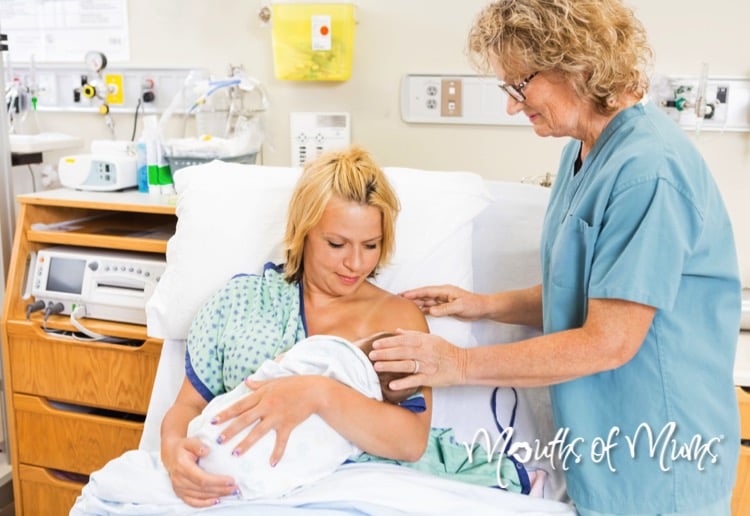Have you ever wondered why when you’re talking to a midwife or lactation consultant they have so many letters after their name? Letters like IBCLC, CBC and many more? Well, whilst on my own breastfeeding journey, shortly after the birth of my daughter in 2012, I decided to find out just what they all meant.
Prior to the birth of my daughter and my breastfeeding journey I was blissfully unaware of how many women have had to fight to exercise their basic right to feed their child in public. This coupled with my realisation that there were so, so many women who had little-to-no support on their breastfeeding journey is what set the wheels in motion for me to research becoming a breastfeeding counsellor.
When I began my research I realised that there were so many hats you could wear when becoming a “breastfeeding helper.” You see so many letters after people’s names; IBCLC, CBC, CLC, CLE… but what does it all mean?
I knew shortly after starting my research that given where I was at in my life it would not be feasible for me to become an IBCLC (International Board Certified Lactation Consultant), which is the highest credential in the breastfeeding field. IBCLCs are healthcare professionals who specialise in the clinical management of breastfeeding and often work in healthcare settings, such as hospitals.
CLCs are certified lactation consultants that have completed a 45-hour course in breastfeeding management and have passed an extensive final exam. Many people will obtain their CL certification as a stepping stone to becoming an IBCLC. CLCs are required to renew their certification every 3 years and often help with situations such as latch issues, offering support to nursing mothers, and supply issues. CLCs are often found working in hospitals, WIC clinics, parenting centers, or they sometimes provide their services via house calls or telephone support.
CLEs are certified lactation educators that have completed a 20-hour training program and must pass their final exam with a grade of 85% or better. CLEs educate families about breastfeeding, offer support to nursing mothers, but do not offer any medical advice. Any medical questions that the mother or family has should be referred to a healthcare professional.
CBCs are certified breastfeeding counsellors that have completed a mentored training program, completed required reading and exercises, complete a final open book exam, and provide a minimum of 30 hours of breastfeeding support.
This is just a sampling of some of the options one would have when choosing their certification in the breastfeeding field. Many certifications are similar, but may have a different acronym tied to them. There are options of being a PC, which is a Peer Counsellor, which you often find in settings such as WIC clinics and the education requirements can vary depending on the accrediting agency. There are LLLI Leaders (La Leche League International Leaders), which are individuals who have been accredited by La Leche League international to offer mother-to-mother support and advice.
I have been a certified breastfeeding counselor (CBC) through Childbirth International for two years and I have never made so much as a penny, depsite offering support, referrals, and recommendations to many women. I did not obtain my certification to make money (not that it wouldn’t be nice – who wouldn’t love to make money doing what they love?), but rather to be support to women on their breastfeeding journey, especially those women who may not have the support of a spouse or other family member.
In my time, I have been able to offer support to a single young mother whose family felt that her choice to breastfeed was “taboo” and that she should feed her baby the “normal way” – with a bottle, a married mother who had already nursed 3 children but was struggling with the nursing relationship with her fourth baby, a mother who feared that she may be experiencing supply issues and wanted to know who she could turn to for medical advice, just to name a few.
Becoming a breastfeeding helper may not be saving the world, but you may certainly save the nursing relationship of a mother and child, or at the very least you may make a huge impact in the lives of your clients. You may not get rich monetarily, but you will certainly feel rich in the blessings of being able to help others in such a magnificent way.
Did you have someone help you when you were learning to breastfeed? Please share in the comments below.
Image courtesy of Shutterstock.com




















11:00 am
11:40 pm
11:37 am
11:22 pm
5:08 pm
-

-
-
kyliealysha replied
- 25 Apr 2016 , 12:48 pm
Reply2:48 pm
2:08 pm
8:14 pm
7:23 am
8:28 am
6:51 am
10:14 pm
8:49 pm
8:35 pm
11:56 am
11:33 pm
9:23 pm
8:25 pm
4:34 pm
12:06 pm
- 1
- 2
- »
Post a commentTo post a review/comment please join us or login so we can allocate your points.